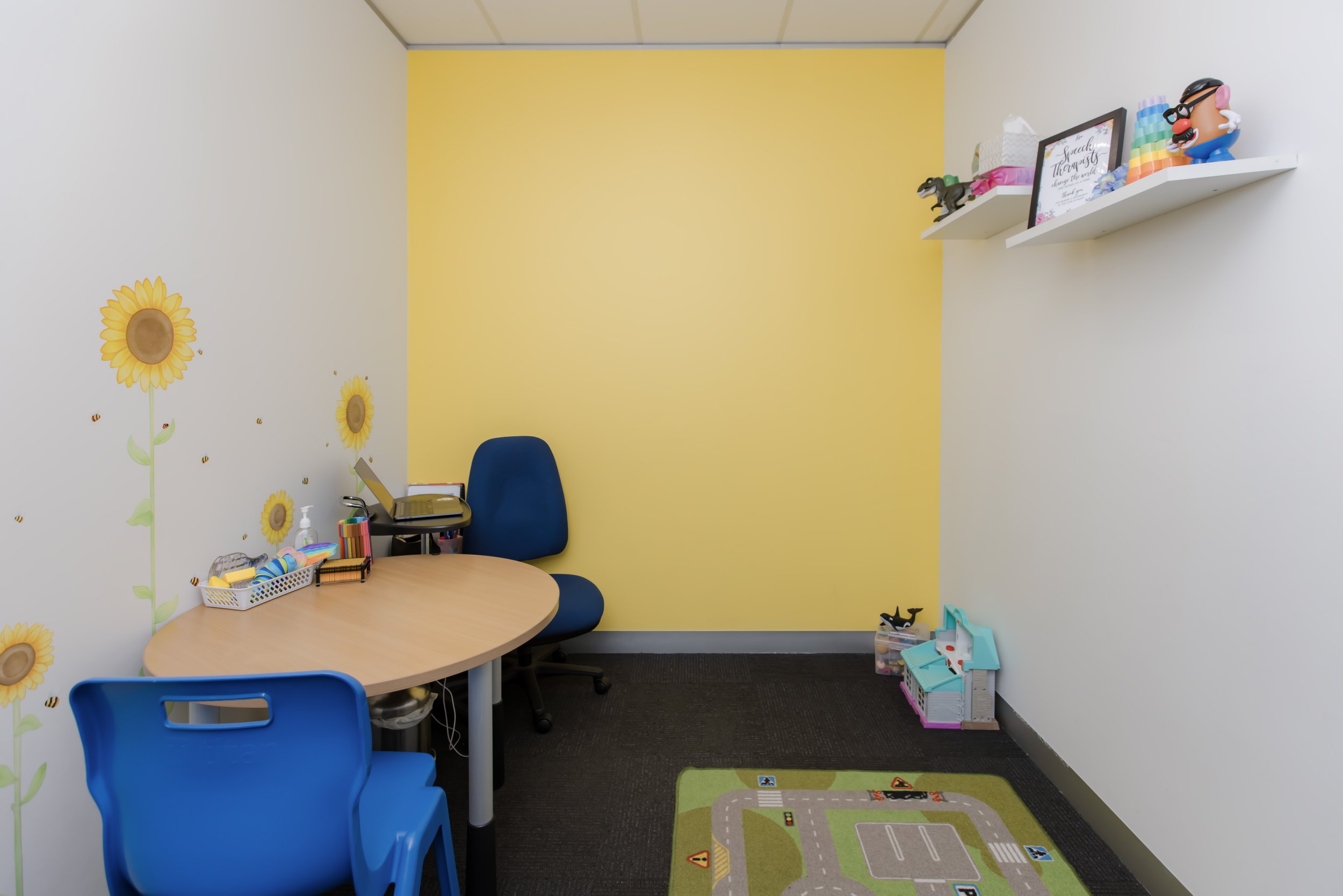
FAQs
Here are the answers to some of the most common questions we get asked by parents and carers.
Please contact us if you have any more questions.
-
The term ‘speech therapy’ is quite deceptive in that it totally undersells what it is that we do! As part of therapy, we may focus on various aspects of communication with your child, and communication is so much more than just words. It incorporates listening, understanding, interpreting, gesture/non-verbals, and includes written as well as verbal communication. This means that we offer therapy for play skills, social language, literacy (reading and writing), fluency, and language as well as speech. Supporting a child to develop good communication skills is like empowering them with a gift that keeps on giving, as we know the importance of good communication in life in general. By supporting a child with their communication, there can also be flow over effects to other areas such as attention span, academic performance and confidence.
-
Here at WIM we are passionate about helping kids to flourish, and if we didn’t see progress we would’ve shut up shop a long time ago! We are committed to keeping up to date with the most recent research about the therapy approaches that encourage generalisation and therefore promote quicker progress. Every child is unique, and therefore different in the way they respond to therapy and how quickly they progress. You can partner with us to assist your child’s progress, by sharing your expert knowledge of your child, his/her personality and the way he/she learns best. This assists us to individually tailor what we do in therapy sessions and see best results. We see progress with all of the children we work with, and this looks different for every child. Some examples include: helping a non-verbal child gain their first words, preventing literacy difficulties in a preschooler with a speech sound disorder, or developing core social skills for a child with an Autism diagnosis and thus helping them to make friends. As we know, prevention is better than cure and as such, a big part of our role as therapists is to up-skill and educate families. By doing so, the input we provide is not only eliminating challenges in the present, but preventing further challenges in the future.
-
There is now research to show that the ‘wait and see’ approach is outdated. We know from research that the majority of late talkers don’t just “catch up”. Even the ‘late bloomers’ who appear to catch up with their early language later show weaknesses in language and literacy, social skills, and emotional and behavioural regulation. We also know that a high proportion of children with speech difficulties struggle with reading. These research findings highlight the importance of early intervention, i.e. the earlier the better. There is also research to show that levels of parental stress are higher in parents of late talkers. Early intervention can help to reduce this stress by empowering parents with strategies to encourage communication. For more information on this topic, refer to The Hanen Centre article “Don’t wait and see, research suggests” (Lauren Lowry, 2018).
-
This is one of the questions that we as therapists are asked the most. Unfortunately, the answer cannot always be as specific as perhaps you as a parent would like. What your therapist can tell you from the research available, as well as practice based evidence, is what the minimum therapy requirements will be. Learning new speech and language patterns requires behavioural changes which take time. If, for example, your child has been diagnosed with a severe speech or language disorder, therapy will likely be required on an ongoing basis for the longer rather than short term. There is unfortunately no ‘quick fix’. We are very aware that this can be a big time and financial commitment for families, and will always work with you to negotiate a realistic plan for therapy.
-
Parent involvement in therapy sessions is key to successful home followup. Home followup is crucial in optimising the repetition of learning and therefore increasing the speed of progress. Participation in sessions enables you to observe ways to give feedback to your child when working on speech and language, as well as useful behaviour management strategies. It also allows your therapist to collaborate with you as the expert on your child and gain more insight that can support therapy outcomes.
-
The Medicare scheme that enables families to get five rebated speech therapy sessions (as determined by their GP) has played an important role in more people learning about what we do as therapists and making our services accessible to a larger number of families. For this we are very grateful. At the same time, however, this scheme can give families the wrong impression or unrealistic expectations of what can be achieved in five sessions. It is not realistic to provide therapy to remediate most issues in only five sessions. We appreciate that for some families, accessing therapy beyond the EPC is not feasible. This is why we ask from the outset if your intention is to continue therapy once your Medicare sessions have been utilised. When the EPC only is being used, we prioritise thorough assessment and parent education, but cannot possibly offer the same kind of service as if ongoing therapy is accessed.
